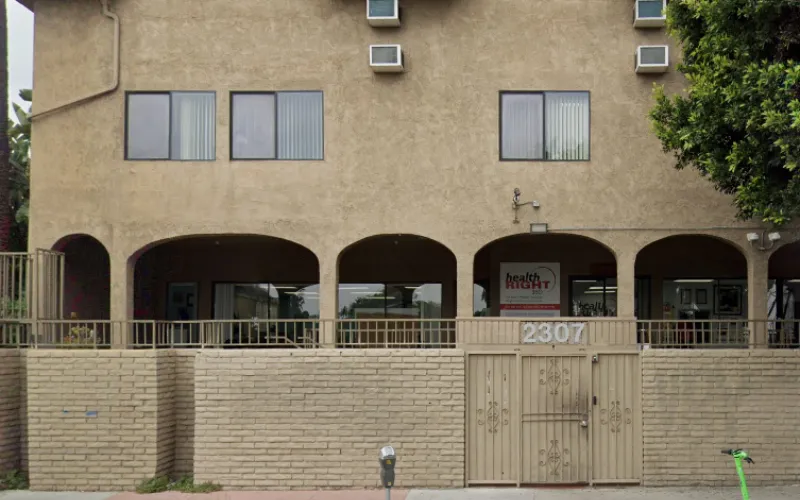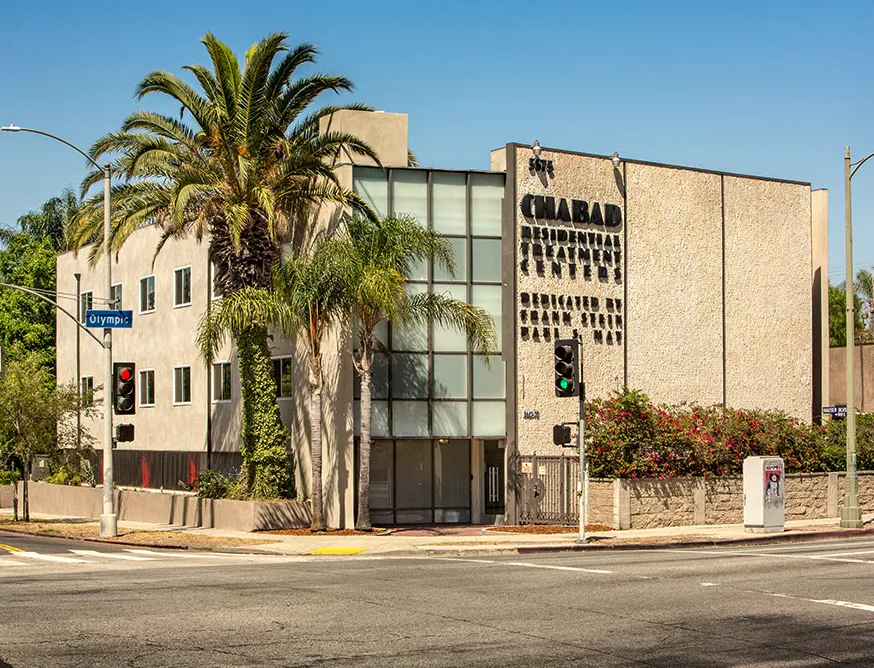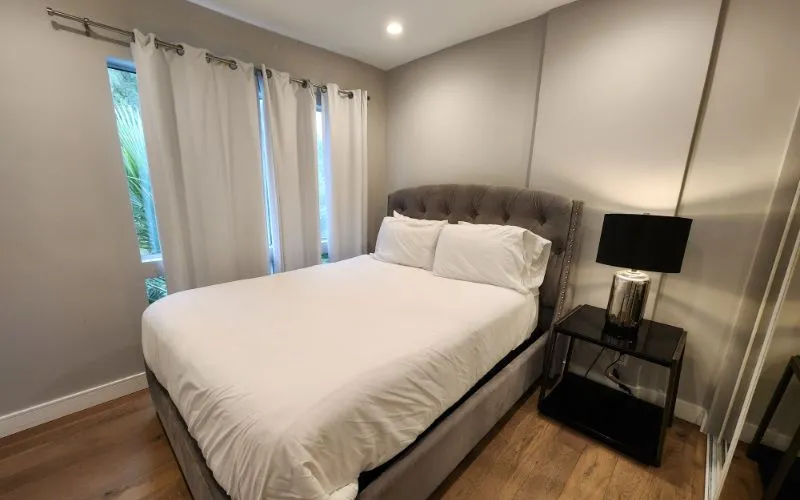Men-only programs provide a focused environment to address addiction, mental health, and personal challenges. These spaces encourage open communication, camaraderie, and shared understanding among participants. Therapy is tailored to the unique needs of men, promoting growth and connection in a supportive setting.
Ads
More Info
Advertisement Disclosure
Our website is funded by advertisers who pay for prominently labeled placements.
Read More20 Rehab Centers were found
Filters
Locations
- Los Angeles(+98)
- Culver City(+14)
- Westlake Village(+13)
- Woodland Hills(+11)
- Beverly Hills(+10)
- Santa Monica(+9)
- Sherman Oaks(+7)
- West Hollywood(+6)
- Malibu(+5)
- Chatsworth(+5)
- Pasadena(+5)
- Encino(+5)
- Redondo Beach(+4)
- Lancaster(+4)
- Reseda(+4)
- Studio City(+4)
- Northridge(+3)
- San Mateo(+3)
- Lynwood(+3)
- Vernon(+3)
- Van Nuys(+3)
- Tarzana(+3)
- North Hollywood(+3)
- Glendale(+3)
- Gardena(+3)
- Riverside(+3)
- Granada Hills(+2)
- Shadow Hills(+2)
- Venice(+2)
- Orange County(+2)
- Pomona(+2)
- West Hills(+2)
- Valley Village(+2)
- Burbank(+2)
- Brentwood(+2)
- Long Beach(+2)
- Sun Valley(+1)
- Torrance(+1)
- San Jacinto(+1)
- San Pedro(+1)
- Upland(+1)
- Whittier(+1)
- Toluca Lake(+1)
- Thousand Oaks(+1)
- Simi Valley(+1)
- Mission Viejo(+1)
- Acton(+1)
- Beaumont(+1)
- Wilmington(+1)
- Panorama City(+1)
- Anaheim(+1)
- Laguna Hills(+1)
- Inglewood(+1)
- Alhambra(+1)
- Rosemead(+1)
- Maywood(+1)
- Manhattan Beach(+1)
- Monterey Park(+1)
- Claremont(+1)
- Covina(+1)
- La Puente(+1)
- Pico Rivera(+1)
- San Fernando(+1)
- Azusa(+1)
- Santa Fe Springs(+1)
- Glendora(+1)
- Agoura Hills(+1)
- El Segundo(+1)
- Duarte(+0)
- Sunland(+0)
- Downey(+0)
- Cudahy(+0)
- El Monte(+0)
- Compton(+0)
- Hermosa Beach(+0)
- Cerritos(+0)
- Calabasas(+0)
- Bellflower(+0)
- Bell Gardens(+0)
- Avalon(+0)
- Arcadia(+0)
- Altadena(+0)
- Paramount(+0)
- South El Monte(+0)
- Walnut(+0)
- West Covina(+0)
- Santa Clarita(+0)
- San Gabriel(+0)
- San Dimas(+0)
- Rolling Hills(+0)
- Orange(+0)
- Hawaiian Gardens(+0)
- Palmdale(+0)
- Norwalk(+0)
- Montebello(+0)
- Lakewood(+0)
- South Pasadena(+0)
- Carson(+0)
- Hawthorne(+0)
Conditions
- Drug(+278)
- Alcohol(+219)
- Mental Health(+195)
- Opioid(+193)
- Cocaine(+184)
- Trauma(+180)
- Methamphetamine(+177)
- Benzodiazepines(+174)
- Heroin(+173)
- Prescription Drugs(+159)
- Depression(+152)
- Anxiety(+149)
- Xanax(+145)
- Synthetic Drugs(+138)
- PTSD(+133)
- Adderall(+131)
- Marijuana(+112)
- Bipolar(+109)
- Ecstasy(+104)
- MDMA(+99)
- Behavioral Health(+93)
- LSD(+93)
- Psychedelics(+91)
- Fentanyl(+71)
- Stress(+71)
- OCD(+69)
- Personality Disorders(+63)
- ADHD(+61)
- Gambling(+38)
- Eating Disorders(+35)
- Anorexia(+34)
- Binge Eating Disorder(+34)
- Bulimia(+33)
- Schizophrenia(+32)
- Gaming(+28)
- Internet Addiction(+27)
- Sex Addiction(+25)
- Burnout(+23)
- Pornography(+22)
- Shopping(+10)
- Narcissism(+8)
Insurances
- BlueCross BlueShield(+129)
- Aetna(+126)
- Anthem(+105)
- Cigna(+105)
- United Healthcare(+66)
- Humana(+63)
- Optum(+53)
- Medicaid(+53)
- MHN(+51)
- Magellan Health(+47)
- Kaiser Permanente(+39)
- Medicare(+31)
- GEHA(+31)
- ComPsych(+29)
- Highmark(+25)
- AmeriHealth(+13)
- Tufts Health(+11)
- Oscar(+9)
- CareFirst(+9)
- Molina Healthcare(+8)
- Intermountain Healthcare(+6)
- Beacon Health Options(+2)
- UMR(+2)
- NYSHIP(+2)
- ILWU(+2)
- Geisinger(+2)
- Empire Life(+2)
- Empire BCBS(+2)
- Bright Health(+2)
- GuideWell(+1)
Therapies

Call for Rates - Up to 2 Years

N/A

N/A

$10,000 - 30 days

$2,000-$5,000

$500-$6000 per month - 6-9 months
Men’s Rehab Programs: Tailored Support for Sustainable Recovery
Men’s rehab programs offer focused guidance that recognizes the specific hurdles men may encounter during addiction treatment, including social expectations, suppressed emotions, and stress management. By cultivating settings designed around men’s experiences, these initiatives encourage resilience, healthier interpersonal dynamics, and enduring sobriety. Below is a look at how these programs function, their core advantages, and advice on choosing the right option.
Why Gender-Focused Treatment Matters
Men often shy away from seeking help due to stigma or the incorrect assumption that admitting difficulties equates to weakness. Single-gender rehab approaches tackle these obstacles by creating a sense of fellowship and trust among participants.
Shared experiences—ranging from job-related stress to fatherhood or cultural expectations—form a foundation for sincere dialogue. Studies indicate that men in male-exclusive settings exhibit higher levels of engagement in therapy, leading to better overall participation and enhanced long-term recovery outcomes.
The major advantages include stronger identification with peers in group discussions, fewer distractions compared to mixed-gender environments, and a comprehensive focus on physical health, emotional growth, and practical life skills. Many of these programs integrate physical exercise, therapies for unresolved trauma, and career-related guidance to cover men’s varying needs.
Essential Features of Effective Rehab
Adaptable Treatment Formats
Residential rehab offers around-the-clock care in a structured setting, ideal for severe addiction or accompanying mental health concerns. Meanwhile, outpatient programs (often IOP or PHP) provide more flexibility for those juggling professional or personal obligations, combining structured therapy sessions with daily routines.
Therapies Suited to Men’s Needs
Cognitive Behavioral Therapy (CBT) assists individuals in pinpointing and adjusting negative thinking patterns, while trauma-informed care tackles deep-rooted issues such as PTSD or adverse childhood experiences. Family counseling works to mend relationships and teaches loved ones how to offer ongoing, constructive support.
Community-Focused Encouragement
Group discussions empower men to share obstacles, cultural pressures, and techniques for maintaining sobriety. This collective environment fosters accountability, reduces isolation, and bolsters the commitment to a sober lifestyle.
Acquiring Skills for Long-Term Wellness
Men’s rehab programs typically emphasize practical tools that extend beyond the duration of formal treatment. Communication workshops encourage constructive emotional expression, whereas relapse prevention sessions identify stressors and propose coping strategies. Incorporating life skills—like financial planning or mindful practices—further strengthens long-term recovery prospects.
Finding the Right Fit
Before selecting a facility, confirm its accreditation and the expertise of its staff in men’s addiction treatment. Look for organizations certified by bodies like CARF or The Joint Commission. Prioritize a program that tailors care to specialized concerns—such as co-occurring depression or pain management. Additionally, robust aftercare resources—like alumni groups, transitional housing, or outpatient follow-up—play a critical role in minimizing relapse risks once primary rehab concludes.
Overcoming the Stigma
Men’s rehab programs transform the act of seeking help into a proactive and empowering decision rather than a weakness. By normalizing the need for assistance and emphasizing personal development, these interventions enable men to reclaim control of their lives. As one counselor points out, “Recovery isn’t about erasing what happened—it’s about shaping the future you want.”
Looking Ahead: Steps to Take
If you or someone close to you is weighing the benefits of men’s rehab, begin by investigating facilities that align with your specific needs—be it addressing trauma, involving family in therapy, or requiring flexible scheduling. Our directory reviews accreditation, treatment methodologies, and ongoing support options to simplify the selection process.
For immediate assistance, call our 24/7 helpline or explore our curated list of men’s rehab programs today.
Frequently Asked Questions
How do men’s rehabilitation programs stand out from co-ed facilities?
Are co-occurring mental health issues addressed in men’s rehab centers?
What is the usual duration of men’s rehab programs?
Is family involvement possible during a men’s rehab program?
Ads
More Info
Advertisement Disclosure
Our website is funded by advertisers who pay for prominently labeled placements.
Read More







































